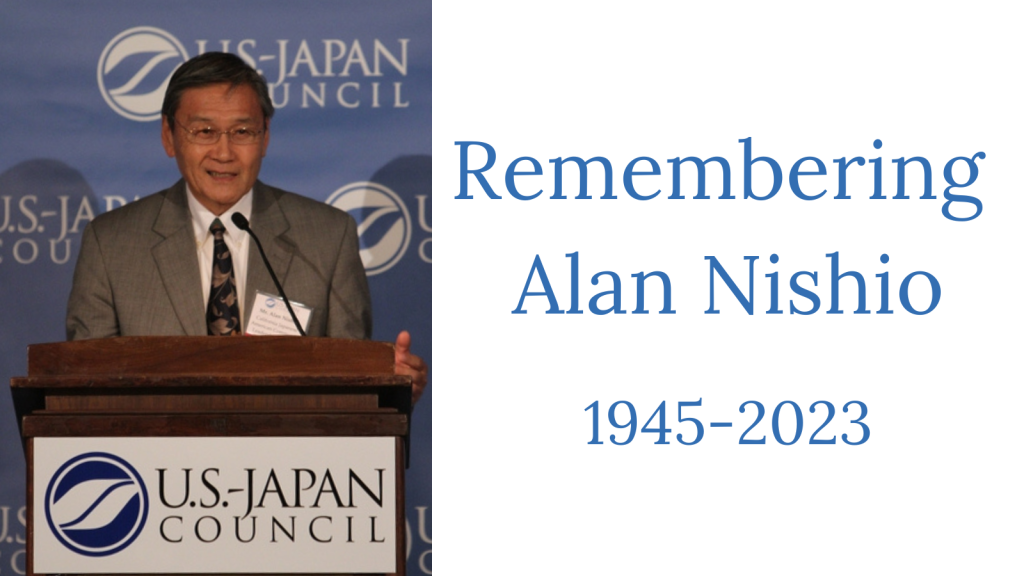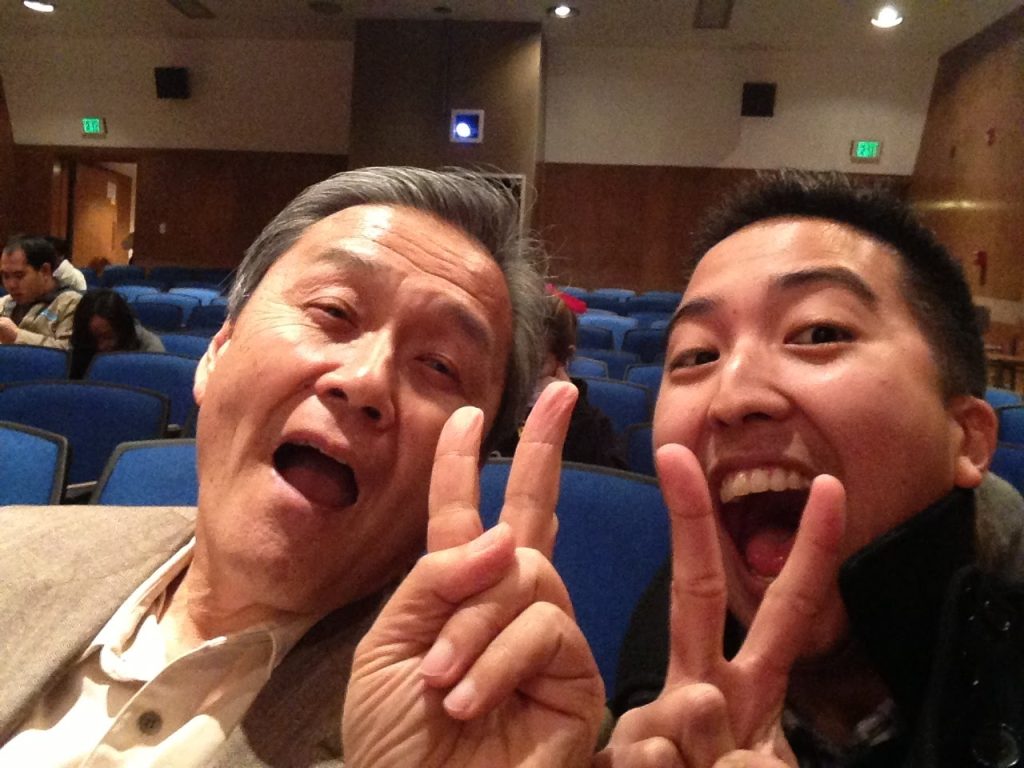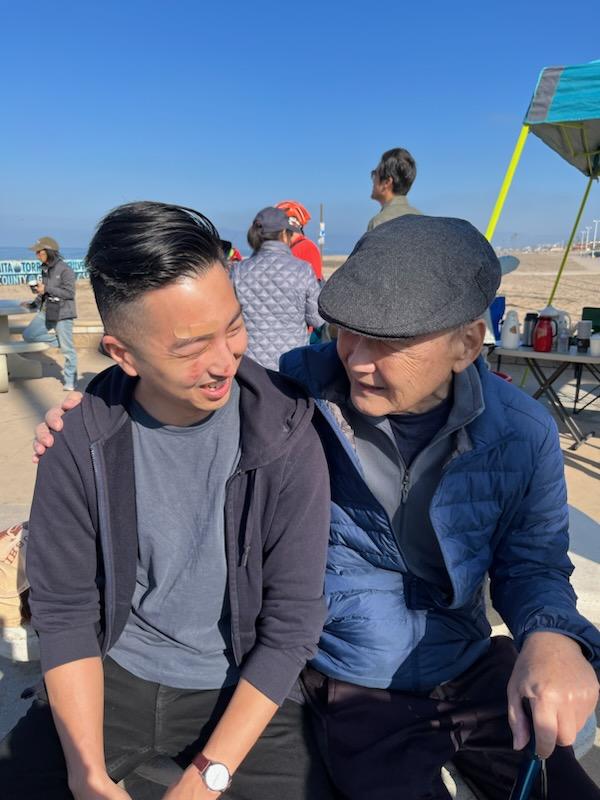
By: USJC Associate Craig Ishii (ELP ’13)
The community mourns deeply with the recent passing of Alan Nishio, a pillar of strength and a beacon of guidance in the Japanese American community. His absence leaves a void that will be profoundly felt by many, including myself. First, speaking personally, Alan was not just a community leader; he was a mentor and a guiding light in my community journey. When we were working to start Kizuna (a nonprofit organization in Southern California dedicated to serving youth) Alan’s wisdom was a cornerstone of our success. He didn’t just help us think broadly and inclusively about how we serve our community; he was a constant source of advice, input and guidance, shaping both the organization’s future and my own personal future. This is a story not localized to me, it’s one that is similar to so many in our community because Alan truly touched the lives of so many.


Photos courtesy of Craig Ishii
Locally, Alan’s dedication was evident through his three decades of service on the board of the Little Tokyo Service Center (LTSC), including a tenure as Board President. His vision and leadership were instrumental in establishing LTSC as a key player in social service and community development not just in Little Tokyo, but across the Greater Los Angeles area. He was a champion of the Budokan project in Los Angeles and provided invaluable assistance to numerous Japanese American community organizations in improving governance models, appointing new leaders and strategic planning.
At the statewide level, Alan was a visionary. He recognized the strength in uniting the voices of Japantowns across California. In the early 2000s, he collaborated with leaders from the three remaining Japantowns to form the California Japanese American Community Leadership Council. This groundbreaking effort garnered crucial support from the state for the preservation of Japantowns. This organization was also responsible for the establishment of the Nikkei Community Internship program, the first, and only, statewide community-based internship program, a program which has also produced a number of USJC Emerging Leaders Program (ELP) participants (and staff!)
Nationally, Alan was a key figure in the establishment of the National Coalition for Redress/Reparations. His advocacy and community organizing were vital in presenting compelling evidence and testimonies to the federal Commission on Wartime Relocation and Internment of Civilians, a pivotal step towards the passing of the Civil Liberties Act of 1988.
Then, of course, there’s Alan’s contributions to the U.S.-Japan Council. He was not only a member of the first Japanese American Leadership Delegation (JALD) class to represent the Japanese American community in Japan in 2000, but he also made several trips to Japan after the 2011 Tohoku earthquake to support relief and community-building efforts. His participation in workshops, seminars at USJC Annual Conferences, and regional meetings for ELP and the broader membership, focusing on organizational development, leadership training, and community connectivity, was invaluable. His role in these initiatives, we’re a driving force in shaping how USJC supports Japanese American not-for-profit organizations and initiatives.
Alan’s myriad of roles and responsibilities throughout his career in community service are too extensive to capture fully. He was more than a leader; he was a mentor, an inspiration, and a true friend. His legacy will continue to inspire and guide us in our efforts to serve our communities and each other.
~Craig Ishii
USJC Associate and ELP ’13